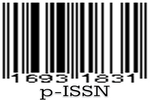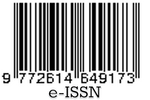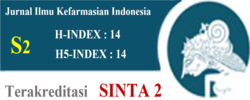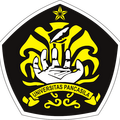Knowledge Level with Self-Management and Compliance with Diabetes Mellitus Drug Use in Gading Clinic, Yogyakarta
Abstract
Diabetes mellitus is a global disease. This study aimed to determine the relationship between the level of knowledge and accuracy of diabetes mellitus drug use and the relationship between the level of knowledge and adherence to diabetes mellitus drug use at the Gading Clinic Yogyakarta. This study was observational. Participants were typed 2 diabetes mellitus patients in the JKN referral program at the Gading Yogyakarta Clinic. Data were collected through questionnaires on knowledge related to diabetes mellitus, accuracy, and adherence. Data analysis was performed using the SPSS program with the chisquare test. The results showed a correlation between knowledge and self-management (p = 0.007), while no correlation was found between knowledge and medication adherence (p = 0.734). Based on these results, there was a correlation between diabetes mellitus knowledge and self-management in patients with type 2 diabetes mellitus at the Gading Clinic in Yogyakarta.
References
Sakit Umum PKU Muhammadiyah Bantul. Pros Simp Nas Peluang Dan Tantangan Obat Tradis Dalam Pelayanan Kesehatan Form. 2014:32-9.
2. Kemenkes RI, Hasil RISKESDA 2018, Badan Penelitian dan Pengembangan Kesehatan, Kementerian Kesehatan Republik Indonesia, 2018. Jakarta
3. Lin CC, Anderson RM, Chang CS, Hagerty BM, Loveland‐Cherry CJ. Development and testing of the
diabetes self‐management instrument: a confirmatory analysis. Research in Nursing & Health. 2008 Aug;31(4):370-80.
4. Marcovitch H. Black’s Medical Dictionary. Edisi ke 41. United States: A&C Black;2005. p. 300.
5. Kusnanto K, Sundari PM, Asmoro CP, Arifin H. Hubungan tingkat pengetahuan dan diabetes selfmanagement dengan tingkat stres pasien diabetes melitus yang menjalani diet. Jurnal Keperawatan
Indonesia. 2019;22(1):31-42.
6. Kaplan H.I, Sadock B.J, Grebb J.A. Sinopsis psikiatri Jilid 2.Terjemahan Widjaja Kusuma. Jakarta: Binarupa
Aksara. 2010. p. 17-35.
7. Niven, Neil. Psikologi kesehatan keperawatan pengantar untuk perawat dan profesional kesehatan lain. Jakarta: EGC; 2002
8. Kristianingrum Y, Budiyani K. Dukungan Keluarga dan Kepatuhan Minum Obat pada Orang dengan Diabetes Melitus. Psycho Idea. 2011;9(2).
9. Yuwindry I, Wiedyaningsih C, Widodo GP. Pengaruh Pengetahuan Terhadap Kualitas Hidup Dengan
Kepatuhan Penggunaan Obat Sebagai Variabel Antara Pada Pasien Dm. Pengaruh Pengetahuan Terhadap
Kualitas Hidup Dengan Kepatuhan Penggunaan Obat Sebagai Variabel Antara Pada Pasien Dm.
2016;6(4):249-54.
10. Garcıa AA, Villagomez, ET, Brown SA, Kouzekanani K, Hanis CL: The Starr County Diabetes Education
Study: development of the Spanish-language diabetes knowledge questionnaire. Diabetes Care 24: 16–21, 2001. Diabetes Care. 2001;24(5):973.
11. Kusniawati. Analisis faktor yang berkontribusi terhadap self care diabetes pada klien diabetes melitus
tipe 2 di rumah sakit umum Tangerang.Tesis. Depok: Universitas Indonesia; 2011.
12. Rasdianah N, Martodiharjo S, Andayani TM, Hakim L. Gambaran kepatuhan pengobatan pasien diabetes
melitus tipe 2 di Puskesmas Daerah Istimewa Yogyakarta. Jurnal Farmasi Klinik Indonesia. 2016;5(4):249-57.
13. Arikunto, S. Prosedur penelitian suatu pendekatan praktik. Jakarta: Rineka Cipta; 2016.
14. Morisky DE, DiMatteo MR. The morisky 8-item self-report measure of mediacation-taking behavior (MMAS-8). Journal of Clinical Epidemiology. 2011;64(3).
15. Sugiyono. Metode penelitian pendidikan pendekatan kuantitatif, kualitatif, dan R&D. Bandung: Alfabeta;2013.
16. Kholifah, S.N. Modul Bahan Ajar Cetak Keperawatan Gerontik. Jakarta : Kemenkes RI Pusdik SDM
Kesehatan; 2016
17. Luthfa I, Fadhilah N. Self Management Menentukan Kualitas Hidup Pasien Diabetes Mellitus. Jurnal
Endurance: Kajian Ilmiah Problema Kesehatan. 2019;4(2):402-10.
18. Primanda Y., Kritpracha C., Thaniwattananon P. Managemen diri perilaku diet pasien diabetes. Thesis
of Prince of Songkla University Thailand; 2011.
19. Siregar CJ. Farmasi klinik teori dan penerapan. Jakarta: Penerbit Buku Kedokteran EGC; 2006
20. Notoatmodjo S. Kesehatan masyarakat ilmu dan seni. Jakarta: Rineka Cipta; 2011
21. Umah, Choerul Imadati. Hubungan tingkat pengetahuan dengan self-management pada pasien
diabetes mellitus di poliklinik RSI Sultan Agung. Semarang: Universitas Islam Sultan Agung;2019.

This work is licensed under a Creative Commons Attribution-NonCommercial-ShareAlike 4.0 International License.
Licencing
All articles in Jurnal Ilmu Kefarmasian Indonesia are an open-access article, distributed under the terms of the Creative Commons Attribution-NonCommercial-ShareAlike 4.0 International License which permits unrestricted non-commercial used, distribution and reproduction in any medium.
This licence applies to Author(s) and Public Reader means that the users mays :
- SHARE:
copy and redistribute the article in any medium or format - ADAPT:
remix, transform, and build upon the article (eg.: to produce a new research work and, possibly, a new publication) - ALIKE:
If you remix, transform, or build upon the article, you must distribute your contributions under the same license as the original. - NO ADDITIONAL RESTRICTIONS:
You may not apply legal terms or technological measures that legally restrict others from doing anything the license permits.
It does however mean that when you use it you must:
- ATTRIBUTION: You must give appropriate credit to both the Author(s) and the journal, provide a link to the license, and indicate if changes were made. You may do so in any reasonable manner, but not in any way that suggests the licensor endorses you or your use.
You may not:
- NONCOMMERCIAL: You may not use the article for commercial purposes.
This work is licensed under a Creative Commons Attribution-NonCommercial-ShareAlike 4.0 International License.





 Tools
Tools





















